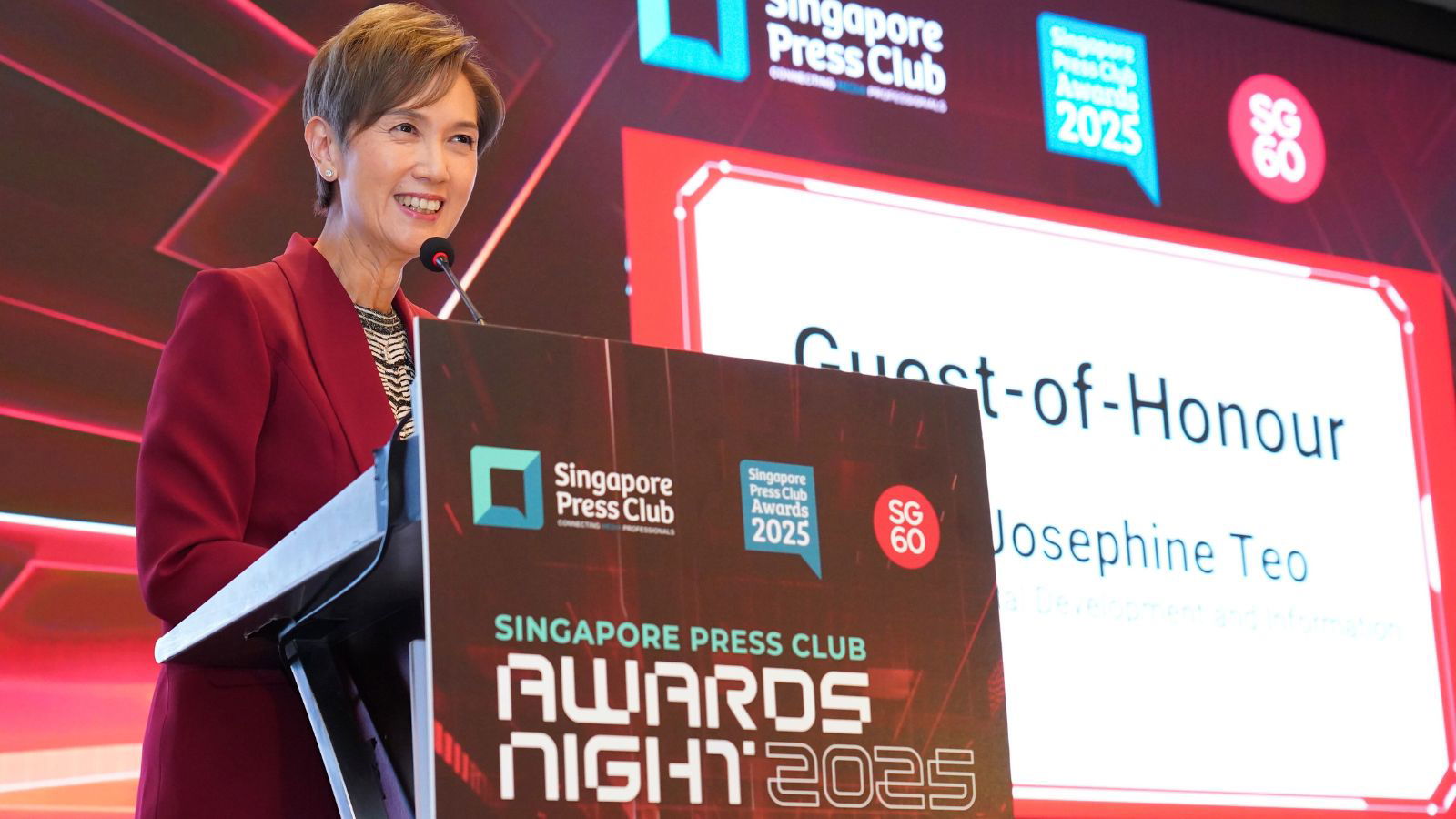



Laws alone not enough to combat deepfakes and misinformation, says minister
share on
Singapore’s recent general election has spotlighted the growing threat of AI-driven misinformation and the urgent need for a resilient information ecosystem, said Josephine Teo, minister for digital development and information, at the Singapore Press Club Awards 2025.
Reflecting on GE2025, Teo noted that while Singapore largely avoided a spike in malicious deepfakes or large-scale coordinated misinformation, the compressed nine-day campaign window amplified risks. The ease of creating hyper-realistic AI-generated videos and audio clips meant the threat of synthetic media loomed large, echoing the experiences of other countries facing disruptive deepfake campaigns.
In response, Singapore introduced new safeguards under the Elections (Integrity of Online Advertising) (Amendment) Act (ELIONA), which prohibits digitally manipulated election content that misrepresents a candidate’s speech or actions.
Don't miss: Halimah Yacob files police report over deepfake criticising government
Under ELIONA, candidates are directly accountable for content declarations, with false submissions carrying serious consequences — including the potential voiding of election results.
Despite the heightened threat, most AI-generated content during GE2025 remained light-hearted, Teo said, crediting public vigilance for helping curb the spread of misinformation. Social media users were quick to flag suspicious content, while clarifications on policy issues and candidate claims were issued swiftly.
Teo reiterated that legislation such as ELIONA and the Protection from Online Falsehoods and Manipulation Act (POFMA) remain crucial guardrails, but stressed that laws alone cannot stem the tide of misinformation. POFMA’s corrections-based approach, which typically requires falsehoods to be flagged and corrected, rather than removed, still leaves space for misleading content to circulate faster than rebuttals can catch up.
Longer term, she said, Singapore’s goal is to strengthen its “infrastructure of fact” to prevent trust in institutions from being eroded. Public service media play a vital role here and remain among the world’s most trusted, with the “Reuters digital news report” citing that 75% of Singaporeans trust The Straits Times and 74% trust CNA, compared to a global average of just 40%.
Teo highlighted how local newsrooms have continued to evolve to maintain that trust. SPH Media deployed Studio+65, its virtual production facility, for GE2025, while Mediacorp integrated AI-powered translation and subtitling tools to make content more accessible. CNA leveraged geospatial data for interactive urban stories, while The Straits Times used machine learning to power dynamic infographics.
"These new capabilities were fully deployed in their coverage of GE2025, allowing the newsrooms to provide wide and comprehensive coverage across traditional and newer formats, keeping citizens of all races and ages informed and engaged," said Teo.
However, while technology and formats evolve, Teo stressed that quality content remains the differentiator. Insight, accuracy and purposeful storytelling are what set credible journalism apart in an age of noise and AI-generated clickbait. She called for continued investment in talent, commending journalists for tackling underreported topics and serving diverse communities.
Closing her remarks, Teo reaffirmed the role of trusted media as a cornerstone of nation-building, especially as Singapore navigates a complex and fragmented global information environment.
Her remarks come on the heels of concerns surrounding AI-generated misinformation during GE2025. In April, more than 20 fake social media accounts were discovered on Facebook and Instagram, spreading misleading content about political parties. Many of these accounts reportedly used AI-generated images to impersonate Singaporeans, creating the illusion of authenticity. The posts frequently targeted candidates with false or negative claims and emerged shortly after Nomination Day on 23 April.
Speaking to MARKETING-INTERACTIVE at the time, a spokesperson from the Ministry of Digital Development and Information (MDDI) confirmed that the ministry was monitoring such accounts for signs of foreign interference. The ministry added that it would continue to take action against content that violates Singapore’s laws.
Related articles:
IMDA blocks Facebook posts from Malaysian politicians ahead of general elections
SG govt proposes new bill to tackle deepfakes during elections
SG elections department implements stricter rules on GE advertising
share on
Free newsletter
Get the daily lowdown on Asia's top marketing stories.
We break down the big and messy topics of the day so you're updated on the most important developments in Asia's marketing development – for free.
subscribe now open in new window
